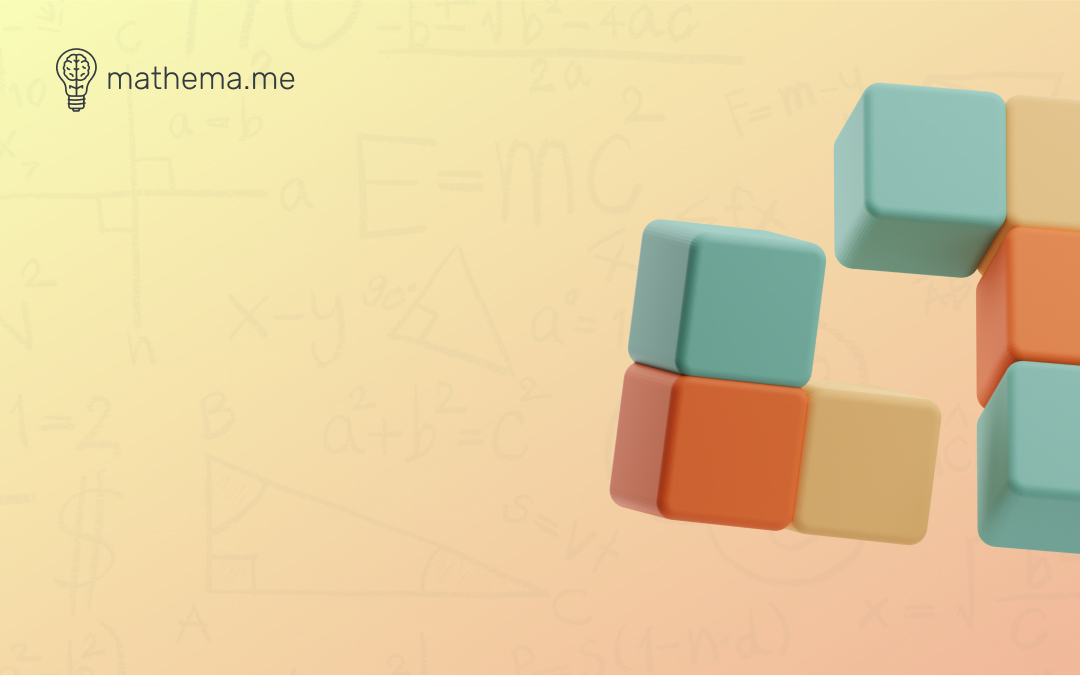- 1 Mathematics – a Language for Everyone
- 2 Mathematics Boosts Creativity
- 3 Enhances Memory
- 4 Problem-Solving Abilities
- 5 Mathematics Boosts Logical Thinking
- 6 Mathematics Facilitates Clear Expression of Ideas
- 7 Mathematics is beneficial beyond just the exact sciences
- 8 Mathematics Plays a Role in Financial Management
“Why do I need mathematics?”. At times, even experienced educators find it challenging to address this query, primarily because of the deeply rooted stereotype that associates mathematics solely with fields like programming, physics, chemistry, and other exact sciences. There’s a prevalent misconception that not every student needs to excel in mathematics during their school years.
However, the reality is that even if your child doesn’t intend to pursue a career in the exact sciences, mathematics holds significant importance. It nurtures logical thinking and memory, imparts analytical skills, and cultivates creative problem-solving abilities.
In this article, we will elucidate the significance of mathematics and why it is crucial for children to commence their learning journey from an early age.
Mathematics – a Language for Everyone
Mathematics serves as a universal language understood across the globe. It provides the most effective means to describe our surroundings in a manner accessible to all. Take, for instance, the creation of musical notation, a task made possible through mathematics. This notation system has played a crucial role in preserving classical compositions by renowned musicians like Mozart and Bach. It breaks time into quarters, incorporating eighth and sixteenth notes, and comprehending a composition’s structure requires a grasp of fundamental mathematical principles.
Moreover, mathematics extends its influence into various other domains. Geometry, for instance, plays a pivotal role in architecture, while combinatorics finds practical applications in sociology. It’s a challenge to identify a profession where mathematics doesn’t hold some significance.
Mathematics Boosts Creativity
The same part of the brain that helps us solve algebraic problems is also responsible for processing musical information. This means that kids who learn to play musical instruments tend to do well in math, and vice versa. In fields like visual arts and design, understanding topology (the study of shapes and spaces) is crucial for representing three-dimensional objects.
Furthermore, math doesn’t just involve rigid calculations; it nurtures creativity. It teaches us to connect seemingly unrelated ideas to come up with innovative problem-solving approaches. All the precise sciences are built upon patterns and symmetries. During math lessons, students manipulate and combine these patterns, learning to create new methods for solving problems, much like how creative individuals think outside the box.
Enhances Memory
A strong memory is valuable in school, college, and adult life. Research in Nature Neuroscience confirms that working on mathematical problems can enhance your memory. Scientists have also discovered that specific areas of the brain play a role in children’s cognitive development. For example, the hippocampus, responsible for memory, influences a child’s interest in gaining knowledge. When you develop your memory, you’re also boosting your curiosity, a crucial element for successful learning.
Problem-Solving Abilities
Studies from the University of Oxford have shown that students who give up on math at the age of 16 tend to have lower levels of a crucial brain chemical required for cognitive development. This deficiency negatively impacts memory, learning, analytical skills, and problem-solving abilities in life. Avoiding math can make students less determined and goal-oriented. In adulthood, we all encounter challenges, and how we handle them directly affects our success. If your cognitive skills are underdeveloped, even minor obstacles can seem insurmountable.
Mathematics Boosts Logical Thinking
According to a study led by Dr. Tanya Evans at Stanford University, it has been shown that children with a strong foundation in mathematics can effectively engage various regions of their brains. This heightened brain activity allows them to apply logic more efficiently. A practical example of how this can be advantageous is when a driver needs to make quick decisions regarding the shortest route while considering factors like traffic congestion, the number of traffic lights, and speed limits. While the relevance of mathematics in such situations might not be immediately obvious, scientists argue quite the opposite.
Mathematics Facilitates Clear Expression of Ideas
As the study of mathematics enhances cognitive skills, as mentioned earlier, it also has a significant impact on one’s ability to articulate thoughts clearly. Firstly, having a logical narrative is essential for effective communication, whether you are a speaker or a storyteller. A sharp logical thinking ability enables you to emphasize key points in a narrative and convey your message without unnecessary details.
Secondly, effective storytelling or delivering a speech relies heavily on a strong memory. Public speaking coaches often stress the importance of memory development, as it plays a pivotal role in conveying thoughts effectively.
Mathematics is beneficial beyond just the exact sciences
Mathematics serves as a bridge between various academic disciplines. While its connection to subjects like physics, geography, biology, and chemistry is well-known, it’s frequently overlooked that mathematics also plays a vital role in the work of sociological researchers, journalists, and filmmakers. Understanding proportions and their real-world applications is essential for tasks such as video editing and selecting the appropriate frame. Additionally, mathematics contributes to the study of subjects like English, history, and literature by enhancing memory, attention, and concentration. It’s a common observation that students who excel in mathematics often perform well in other subjects too.
Mathematics Plays a Role in Financial Management
Having strong mathematical skills can greatly benefit you in managing your personal finances. These skills give you the ability to ensure that your expenses do not exceed your income. Moreover, mathematics comes in handy when planning your financial future, instilling the value of money in a child from an early age. For instance, being able to balance a bank account is a crucial life skill that involves meticulous calculation of all expenses.
Furthermore, mathematical proficiency proves useful when making purchases. Understanding percentages and having the ability to quickly calculate values can save you time, especially during shopping center sales. For instance, you can swiftly determine discounts or verify the accuracy of a receipt.



